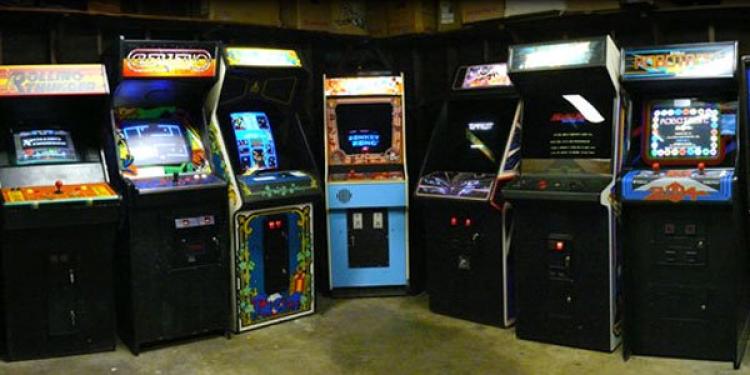Arcade Games to Make a Comeback to Florida Following Senate Gaming Committee Vote
Posted: March 12, 2014
Updated: October 4, 2017

Florida Senate Gaming Committee approved a bill to amend gambling laws allowing arcade games to operate.
Senate Gaming Committee has just voted on a bill, which will exclude coinless arcade games from the ban valid in Florida under American gambling laws. The PCB 668 bill was put forward by Sen. Kelli Stargel and will no longer put favorite arcades games like Chuck E Cheese or Dave & Busters in violation of the state law.
Initially, the bill was designed to fix the last year’s law, which banned internet café gambling, but simultaneously managed to affect family entertainment centers as well. Organized action groups pleaded to lawmakers urging them to revise the law and also asked local police force not to enforce it. State legislators listened and finally came up with the needed amendments.
Potential trouble with the bill
However, some skeptics are now saying the new bill can offer a loophole in the gambling laws potentially allowing online casinos in the United States to operate in Florida.
Florida Senate Gaming Committee allows arcade gaming
• American gambling laws have been amended in the state to correct last year’s ban
• Arcade-style games will no longer fall under internet café gambling ban
• According to some experts this can create a loophole for illegal gambling
A gambling law expert and renowned lobbyist for the Association of Gaming Equipment Manufacturers, Marc Dunbar, opined that the bill contains loopholes. According to him some clever operators will be able to develop various technologies to provide a brand new approach to real-money gambling on electronic games. Moreover, if such games are developed, according to the new bill the authorities will not be able to prevent people from gambling on them.
In case the bill passes the Committee in the form it is right now, illegal operators will be popping like mushrooms after the rain. There’s no state regulator to govern them, and the law enforcement agencies will have no legal background to stop such operators.
Essence of the bill
The PCB 668 bill takes a different approach to the definition of amusement games, and makes it legal for them to be located in arcades, bowling parlors, truck stops, restaurants and hotels. It also goes on to remove the necessity for operators to have at least 50 games in their establishments.
The bill also ensures players can use cards, tokens, or coupons to operate the game, instead of just coins previously. Additionally, the bill raises the total prize value of one game from $0.75 to $5.25 allowing prizes as high as $50.
Sen Stargel had the following comments quoted by American gambling news: “Our target was not family arcades.” She also noted that the bill provides clarification “that these amusement centers need to continue to provide entertainment for children and adults.”
In case the arcade centers and other establishments, which were closed last year follow the rules of the bill, they can be reopened. However, the Senator was quick to note that the new bill outlaws video lottery terminals and any casino-type games, provided they are not certified as skill-based games.
Opposition to the bill
On the other hand, Marc Dunbar continued to stress his point that the new bill was full of potential misunderstandings. He has urged the Committee to provide a state authority in order to govern and regulate the games, opposed to just leaving them in local police jurisdiction.
He also went on to add that there is still a sizeable number of illegal gambling facilities operating within the state, despite last year’s ban on internet cafes gambling. According to him owners of these establishments receive certificates from out-of-state companies, proving that these are games of skill rather than luck, and there’s little the local law enforcement can do about it.
He said: “The grey market industry is very vibrant in Florida because we do not have a regulator on top of our gaming code.’’
Another warning from Dunbar came about the claw machines legalization, which is an illegal gambling machine according to federal government. This discrepancy will violate the state compact with the Seminole Tribe, which can potentially lead to loss of $250 million in annual payments.
Lawmakers have always relied on Dunbar to provide expertise in gambling law, but this time around they have ignored his views on the matter. The bill vas voted on unanimously.
Garret Richter, Senate Gaming Committee Chairman, opined that the bill’s goal was not to stop future violations, but rather solve the current problem of existing businesses caught up in the midst of internet café gambling ban. He said: “This bill that we took up today, its intent is not to curb (problems) in the future. It was trying to correct the past.’’












